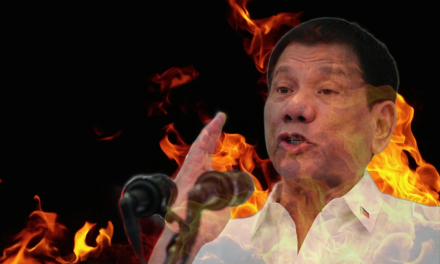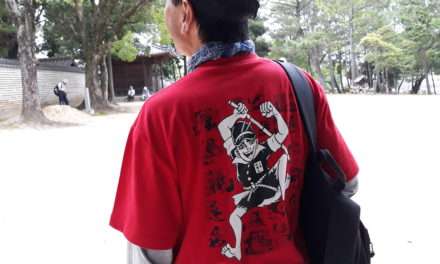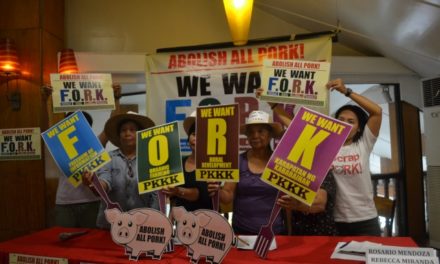Good afternoon. Thank you for the opportunity to contribute to the discussions. Allow me as well On behalf of Focus on the Global South as one of the co-organizers, to thank everyone for joining this side event at the HRC 59 to share the findings of a report on transnational landowners and inequality and the case for redistribution.
I’m making this short video from the Philippines where I am based. Allow me to share a few reflections on the main issues outlined in the report, from our experience here in the Philippines.
The just distribution of all agricultural lands is a commitment by the Philippine State, its a commitment enshrined in the constitution and made operational in the Comprehensive Agrarian Reform Law and Program which turned 37 years old last June 10.
Almost four decades on however, not only have the targets for land distribution not been fully met, farmers across the country have raised concerns not just about the slow pace of the program completion, but of intensifying landlord resistance resulting in reversals-with agrarian reform beneficiaries losing control over the land, and increasing reprisals against their assertion of their land rights.
These attacks against farmers take on many forms– they are branded as terrorist or linked to the communist insurgency; they face criminal cases and all sorts of SLAPP suits from cyberlibel, to syndicated estafa.They are deprived of support to make their lands productive, forcing them to accumulate debts and eventually leading to them relinquishing their control over their land.
What’s happening in the Philippines, is emblematic of the kind of challenges and barriers to advancing our demand for redistributive policies as a pillar in confronting multiple interlocking crises that we are facing today. A situation where despite the avowed commitment by the State to land distribution through agrarian reform and also the recognition of the right of indigenous people’s to ancestral lands/domains, lands continue to be grabbed in some cases back to the hands of the landlords, justified in the name of investments and projects in infrastructure, tourism, large plantations, dams, mining projects and other large-scale development projects-
At the core of the problem is corporate power and corporate capture of policies which have tilted the discourse away from land as a social justice and human rights issue, to land viewed from the lens of economic efficiency and maximizing revenues. Focus has documented for example that between 1996-2020, the government has reclassified and approved the conversion of agricultural lands to other non-agricultural uses like resorts and residences, and industrial and commercial areas. Ancestral domains of IPs on the other hand are prime targets for large scale mining and plantation projects.
The increasing pressure on agrarian and indigenous lands from large investment projects have also made these areas militarized and human rights hotspots. Not only have these land grabs dispossessed communities from their lands, communities standing up to resist the corporate takeover have been threatened, harassed and killed.
The attacks against land and environmental defenders is sadly a global phenomenon. Special Rapporteur on the situation of human rights defenders, Mary Lawlor’s latest report which looked specifically on the situation of human rights defenders working in isolated, remote and rural contexts, cited the killings of hundreds of land and environmental defenders with many of those killed being Indigenous People’s rights defenders.
Concentration of land in the hands of powerful corporations have not only economic, social, environmental consequences for poor and marginalized communities but pose a huge threat to their human rights as well.
Echoing the report, one solution therefore lies in ensuring greater corporate accountability.
Focus is part of the Global Campaign pushing for the legally binding instrument to regulate the operations of TNCs and make them accountable for human rights violations. Key elements of the proposed binding treaty that we can highlight here are the : The assertion of the primacy of human rights law over economic activities, and trade and investment agreements as well as giving affected communities the opportunity to seek redress and remedy from harm;
Another important element is ensuring that joint and several liability is established along the value chain ensuring that each and all parties can be held individually responsible for the entire obligation or a portion of it. In the case of mining projects in the Philippines for example, not just the local mining company should be responsible but likewise the companies that it supplies raw minerals to, in other words the subsidiaries but also the mother company must be included.
And then finally another important provision is the one recognizing and promoting the rights of affected persons and communities. A big part of this is the right afforded to indigenous people’s on free, prior and informed consent (FPIC).
The LBI campaign is one effort to put in place stronger human rights obligations on corporations to help temper their growing power and influence.
There are also other instruments that we can consider as enablers of corporate power that must also be challenged. The trade and investment policy environment which includes comprehensive and ambitious free trade and investment agreements further entrench the corporate bias in policies and corporate control over critical minerals.
These ambitious agreements that are being negotiated by governments have far reaching impacts on farmers rights, agricultural policies; restricting the ability of governments to protect agriculture particularly peasant agriculture on the one hand and enabling greater power of corporations on the other hand; including giving corporations the power to sue governments.
These agreements must be seriously scrutinized and resisted by governments and the people as instruments of corporate concentration of power.
I’ll stop here, Wishing you all a productive discussion leading to clearer strategies on how we advance our call for redistributive policies and the stronger reassertion of people’s rights.
Thank you.







![[IN PHOTOS] In Defense of Human Rights and Dignity Movement (iDEFEND) Mobilization on the fourth State of the Nation Address (SONA) of Ferdinand Marcos, Jr.](https://focusweb.org/wp-content/uploads/2025/07/1-150x150.jpg)

